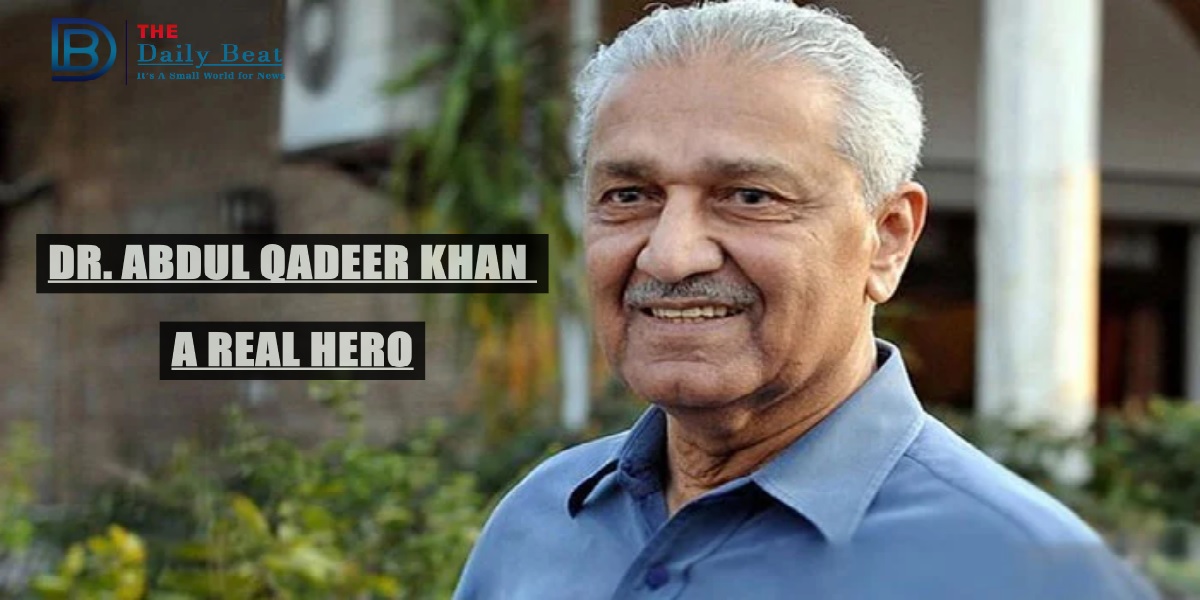On September 13, 2021, nuclear scientist Dr. Abdul Qadeer Khan, who is currently undergoing treatment in a hospital, expressed dissatisfaction with the government. “I am quite disappointed that neither the prime minister nor any of his cabinet members have inquired about my health,” Dr. Khan told Dawn when contacted about his condition.
Beginning in the first week of September it was disclosed by his spokesperson that, he was hospitalized at Khan Research Laboratories hospital on August 26 after testing positive for Covid-19. Qadeer’s health has deteriorated as a result of the illness, and he has been placed on a ventilator at the hospital.

In 1971 Pakistan had no choice but to become a nuclear power after the war with India and the separation of Bangladesh. Zulfiqar Ali Bhutto started the nuclear program with the Shah Faisal forensic report.
Dr. Abdul Qadeer Khan, a Pakistani scientist, was brought back from Holland and volunteered his skills for the country’s security. His enormous understanding of gas centrifuges came from working with URENCO in the Netherlands on uranium enrichment plants.
Pakistani engineer Abdel Qadeer Khan Khan moved to West Pakistan in 1952 and graduated from the University of Karachi in metallurgical engineering in 1960. Then he went to the Netherlands for a master’s degree in metallurgy and got a metallurgical engineering doctorate from the Catholic University of Leuven, Belgium, in 1972.
Khan was hired by URENCO’s Dutch partner, Physical Dynamics Research Laboratory, in spring 1972. URENCO was founded in 1971 by British, German, and Dutch companies to study and manufacture ultracentrifuges. In addition to having complete access to ultracentrifuge information, Khan frequently visited the Dutch factory in Almelo. He was paid to translate German advanced centrifuge documentation into Dutch.
Pakistan’s disastrous defeat in a brief war with India in 1971, the loss of East Pakistan to the creation of a newly independent country, Bangladesh, and India’s May 1974 nuclear test influenced Khan greatly. To construct an atomic bomb, Khan wrote to Pakistan’s Prime Minister, Zulfikar Ali Bhutto, on September 17, 1974. This began a process that concluded with Pakistan attaining nuclear capabilities, despite many obstacles.
Pakistan prepared for possible testing in the 1990s. The Ras Koh Hills in southwestern Baluchistan province was chosen as a test site by project officials. Engineers prepared by drilling test shafts down beneath the ground. Pakistan also made significant advancements in missile technology, creating the Ghauri medium-range ballistic missile, a North Korean Nodong derivative.
After India conducted its nuclear tests in May 1998, Prime Minister Mohammad Nawaz Sharif came under intense pressure to authorize nuclear tests. “In all domains, we in Pakistan would maintain a balance with India,” Foreign Minister Gohar Ayyub Khan, a supporter of testing, stated. “The subcontinent is engulfed in a headlong arms race.” However, international leaders urged Sharif not to retaliate against India’s tests. The US even offered Pakistan a removal of the Pressler Amendment in exchange for refraining from testing.
However, after Sharif issued the directive “Dhamaka Kar Dein,” Pakistani officials proceeded with preparations for the Chagai-I test. The bomb components were flown to Ras Koh by a military escort, where they were assembled and installed in the test shafts alongside diagnostic cables. Pakistan blew its first devices at the Ras Koh test site on May 28, 1998, less than three weeks after India conducted nuclear tests. “Today, we have reconciled a score and successfully conducted five nuclear tests,” Sharif stated. However, with a cumulative output of 9 kilotons, there is significant controversy over the number of bombs tested. Pakistan followed up with a second test, Chagai-II, two days later.
Khan was charged with transferring nuclear technology on January 31, 2004. On February 4, he appeared on Pakistani television, taking full responsibility for his actions and absolving the military and the government. His pardon came the next day, although he was put under house arrest until 2009.
For Pakistanis, Khan is a hero who strengthened Pakistan’s national security against India.
But, if the government can help the great Umer Sharif, why can’t they just pay a visit to the country’s National Hero? Don’t he deserve that respect?
We pray and hope that may he get well really soon and govt also treated him how a national hero deserved to be treated.

Author is a Lahore College for Women University graduate. She writes with zeal and believes that there is nothing greater than words to express herself.
